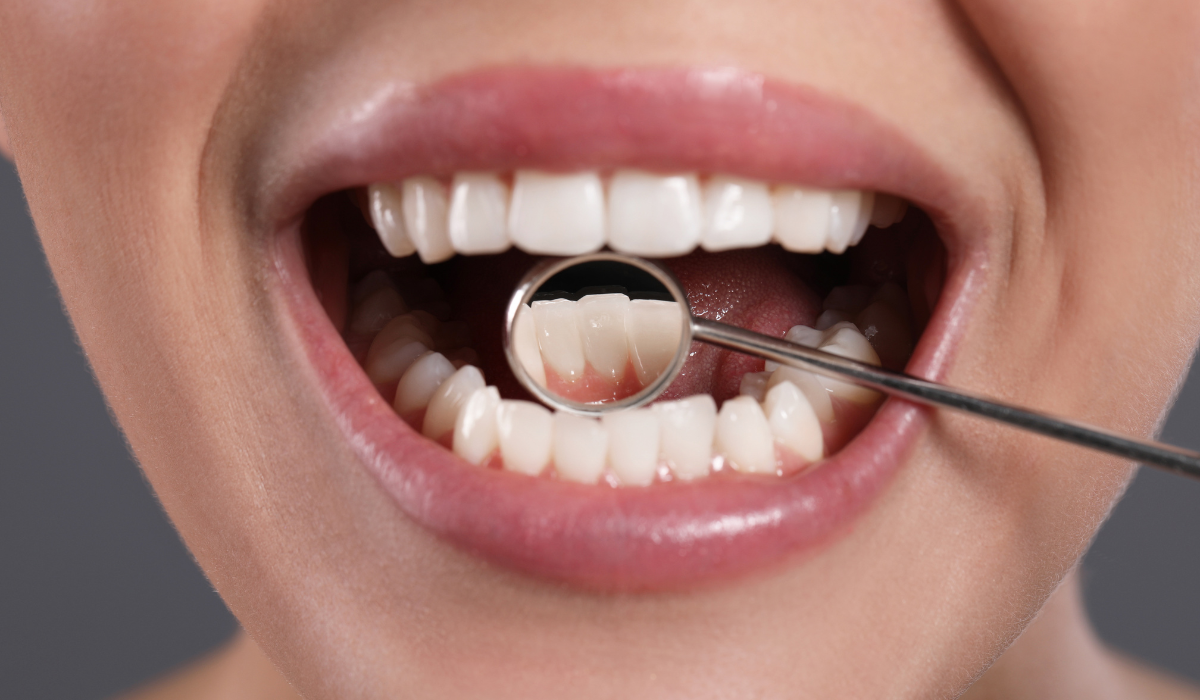Periodontal disease, or gum disease, is a dental condition that affects millions of individuals worldwide. The CDC gum disease survey indicated that the prevalence of gum disease was unstable across various populations. The study further showed that 47.2 percent of Americans, or approximately 64.7 million people, had gum disease ranging from mild to moderate to severe. In the 65 and above age group, the prevalence of gum disease was higher at 70.1 percent.
Amongst the most asked questions is, gum disease contagious?. There are several myths in relation to the manner in which a person catches gum disease and why gum disease occurs. In this article, we will demystify the myths and facts around gum disease being infectious.
What is Gum Disease?
Periodontal disease, or gum disease, is an infection of the gums and the tissue that supports the teeth. It is most frequently caused by plaque, a biofilm of bacteria that adheres to the gums and teeth. Plaque, if not removed by brushing and flossing, becomes tartar, which leads to gum infection and inflammation.
Contagiousness is the term used for the ability of a disease or infection to infect itself from person to person. Certain diseases, including colds and flu, are contagious in the sense that they will rapidly pass through touching or airborne transmission, although gum disease is not.
Myths and Facts About Gum Disease Transmission
Myth: Gum Disease Spreads Like a Cold or Flu
Fact: Gum disease is not infectious in the conventional sense. It is not spread from one person to another by airborne germs, coughing, or touching unintentionally.
Myth: You Can’t Catch Gum Disease from Another Person
Fact: While gum disease is not contagious, the germs that cause it are transmitted from one individual to another via saliva. Kissing, spooning, or sharing a toothbrush, for instance, may subject an individual to transferring deadly germs.
Myth: If Your Spouse Has Gum Disease, You Will Catch It Too,
Fact: Just because another person has gum disease doesn’t necessarily mean you will. Whether or not is up to your oral hygiene, your immune system, and your overall health.
How is Gum Disease Transmitted?
While gum disease is not as contagious as a virus, its cause – bacteria – is transmitted by saliva. So:
- A kiss from an infected person can pass germs to you.
- Sharing food or a spoon passes the bacteria.
- Sharing toothbrushes increases your risk of spreading bacteria.
However, contact with the bacteria does not necessarily lead to gum disease. Being healthy and having good oral hygiene are big reasons for not getting infected.
Risk Factors for Gum Disease
There are several risk factors for gum disease, including:
- Poor oral hygiene: Failure to brush and floss every day leads to the development of plaque and gum infection.
- Smoking and tobacco use: Inhibits the immune system, therefore interfering with resistance to infection.
- Menstrual change: Menstruation and pregnancy will result in inflammation-prone gums.
- Diabetes: Inability to manage diabetes will result in interference with healing and risk of infection.
- Some medications: Dry mouth is a side effect of some drugs, and gum disease is a side effect of dry mouth.
- Hereditary: You could be genetically inclined to gum disease.
Symptoms of Gum Disease
If you notice any one of the following symptoms, you must visit a dentist for treatment and diagnosis:
- Receding or longer-appearing gums or teeth
- Bad taste or long bad breath
- Loose or shifting teeth
- Change in bite upon chewing
Treatment of Gum Disease
Gum disease treatment depends on the severity of the condition. If in the beginning stage, then in most cases, it can be treated with non-surgical techniques like:
- Professional tooth cleaning: A dental hygienist will eliminate tartar and plaque both above and below the gumline on a visit for scaling and root planing.
- Antibiotics: Utilized at times to treat infection caused by bacteria.
Severe gum disease is sometimes required on the occasional basis by aggressive treatment like
- Periodontal surgery: Destroys tartar buildup, decreases pocket depth, and renews lost bone and tissue.
- Gum grafting: Closes exposed tooth roots and restructures gum tissue.
Conclusion
In short, gum disease is preventable but a common oral disease condition. Not being infectious by itself such as the flu virus, its disease-causing bacteria, however, can be transferred through saliva. Pathogen bacteria transfer and progressive development of gum disease are preventable through good oral hygiene, non-sharing of oral appliances, and regular dental check-ups.
By understanding the myths and facts about gum disease, you can do something to ensure the oral health of your family and yourself.
FAQ’s
Can you contract gum disease by kissing someone with gum disease?
Yes, bacteria that cause gum disease can be spread through saliva while engaging in activities such as kissing.
Is gum disease hereditary?
Even if gum disease is not hereditary, there are genetic characteristics that predispose some individuals to developing gum disease.
Can children develop gum disease?
Yes, but in adults, more commonly, children and adolescents can develop gum disease, especially if they don’t practice good oral health.
How do I prevent gum disease?
Flossing and brushing daily, avoiding smoking, proper diet, and regular dental visits can prevent gum disease.






